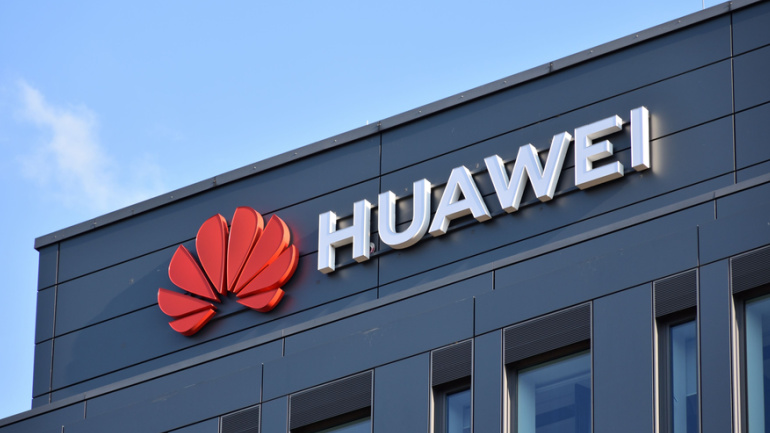The EU’s first annual State of the Digital Decade report highlights an urgent call to action for increased investment to meet its 2030 technology targets. The report underlines the significance of collective efforts by member states to successfully navigate the prevalent digital transformation. The document illuminates areas such as 5G deployment, which has been slower than expected, and inadequate fiber network coverage, among others. Simultaneously, it draws attention to other essential aspects, like digital sovereignty and the digitalization of businesses, suggesting an additional investment of at least €200 billion may be necessary. Issues such as these could hamper the bloc’s ambition to double its share in the semiconductor sector by 2030.
The recent Huawei Network Summit 2023 in Jakarta became a milestone for the Asia Pacific telecom sector, reinforcing Huawei’s commitment to relentless innovation. The Summit demonstrated advanced solutions like the Intelligent Cloud-Network and novel products geared towards enhancing digital productivity. Focusing on the growing need for robust network operations amidst digital transformation, innovative strategies were introduced across various platforms. Transformative solutions promulgated include offerings for streamlined office networks, improved AI training efficiency and convergent network management.
Nokia, TPG and Mediatek are collaborating to showcase the power of carrier aggregation technology in live-streaming 360-degree broadcasts, a key element for future metaverse applications. The demonstration at Nokia’s 5G Futures Lab used multiple sub-6 GHz frequency bands to maximize 5G uplink speeds, enabling real-time transmission of high-quality video. The technology could revolutionize the viewing experience for TV, movies, sports and industrial metaverse scenarios such as remote-controlled robots performing hazardous tasks.
In an audacious move against China’s tech supremacy, the U.S. has issued an executive order curbing American investment in several Chinese industries. Citing national security fears linked to the development of military, surveillance, and cyber technology in China, the U.S. declared a national emergency facilitating swift action. This could significantly impact sectors such as semiconductors and quantum computing, and might also influence global investment trend.
A groundbreaking discovery at the University of the West of Scotland reveals a transformative way to convert human energy into electricity, powered by a 3D graphene foam material. Primed to revitalize the IoT industry, this research spotlights a pressure-sensitive mat that could generate power simply through human footfalls. Offering a unique solution to energy management, this technology could minimize the environmental impact, while fostering a new era of wireless connectivity.
ITIF urges a reevaluation of U.S. broadband programs in favor of the significant Affordable Connectivity Programme (ACP), aiming to give low-income households internet access. Predictions show funds will be depleted by 2024, necessitating a yearly investment between $5-$6 billion, potentially sourced from outdated programs. Despite appearing feasible, the report warns digital divide issues require more than funding, including digital literacy initiatives. Unveil the evolving connectivity panorama in our upcoming Connected America conference.
The UK’s newly established business council brings together heads of fourteen industry behemoths like AstraZeneca, NatWest Group, and Vodafone, offering insights to the Prime Minister on critical economic matters. It’s interesting that Google DeepMind is the only exception to the FTSE 100 list; also significant is the vocal Vodafone inclusion, led by CEO Margherita Della Valle, along with the impending departure of BT’s CEO Philip Jansen amidst a period of shrinkage. The absence of SME representation on the council has fueled criticism, underscoring the complexity and potential bias in shaping Britain’s economic future.
As companies globally adopt innovative strategies, leveraging considerable commercial benefits from their 5G investments is at the forefront. Pioneered by Chinese service providers, the paradigm shift towards traffic value-based operations has significantly enhanced revenue. Unique 5G experiences such as ultra-high speed and low latency have unlocked new function scenarios, exemplified by the booming live broadcast industry in China. Meanwhile, European and Middle East counterparts effectively implement rate-based charging models, showcasing the versatility of the 5G platform. This status quo suggests that as we advance, the necessity to adapt traffic value-oriented operations for effective monetization becomes paramount, opening new revenue vistas and novel business models.
In a groundbreaking advancement set to redefine 6G services, field experts are experimenting with brain-inspired computing. Noted engineers from King’s College London and Princeton are spearheading a project aiming to enhance the integration of AI in wireless communications systems. This strategic initiative, fuelled by support from prominent bodies like the ESPRC and NSF, has the potential to reshape sectors such as mobile health care and robotics.
Outpacing the global auto industry, Zeekr, a subsidiary of Geely, has launched a groundbreaking 5G-enabled factory in Ningbo, China. Developed alongside China Unicom Zhejiang, this advanced facility leverages 5G for superior data processing, revolutionizing car manufacturing customizability. However, obstacles such as infrastructure robustness and data security come with the territory of employing 5G in production processes. Nonetheless, the potential of this intelligent blend of automotive and digital tech seems irresistible, prompting worldwide industry attention towards Zeekr’s trendsetting venture.













